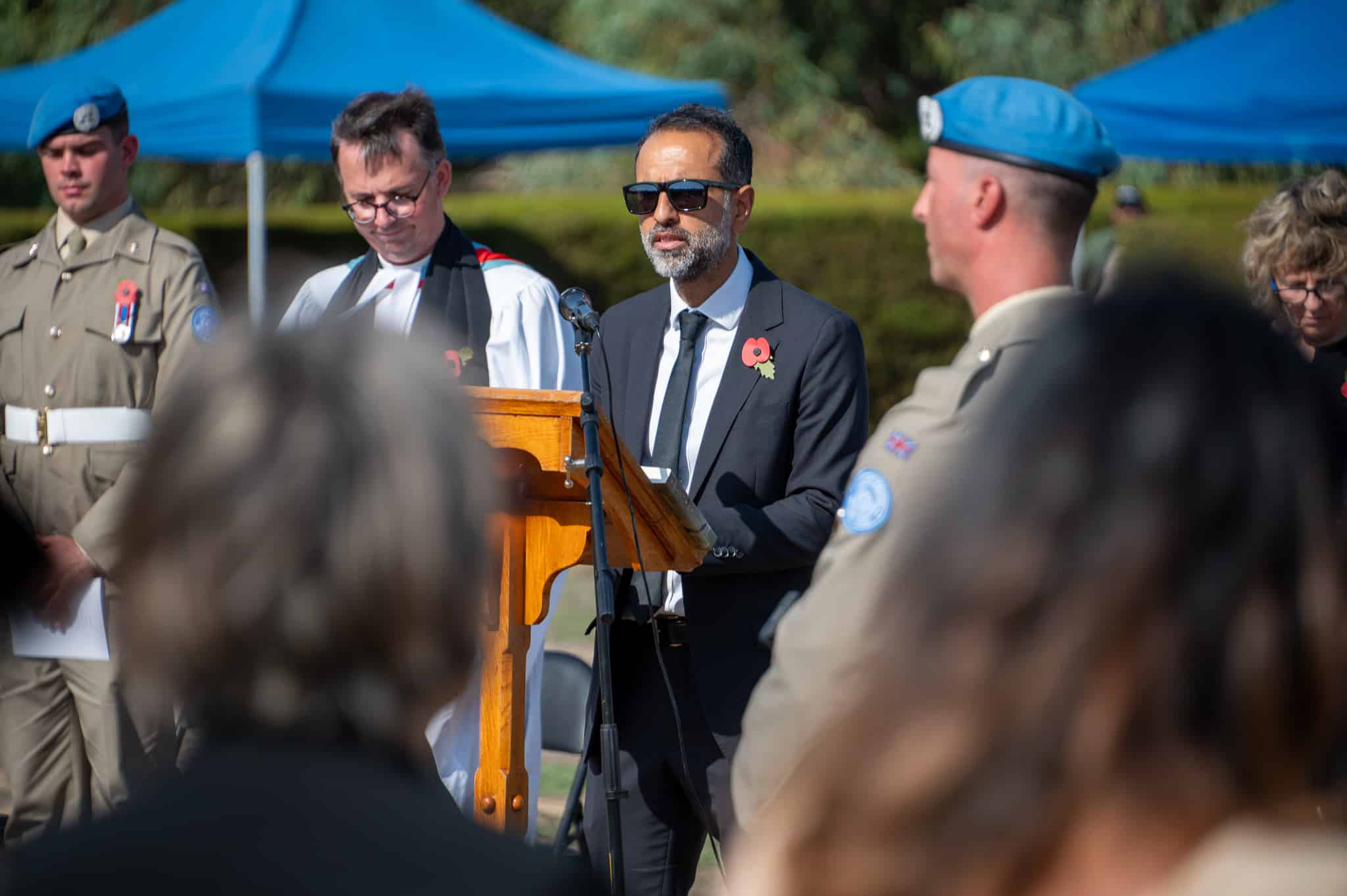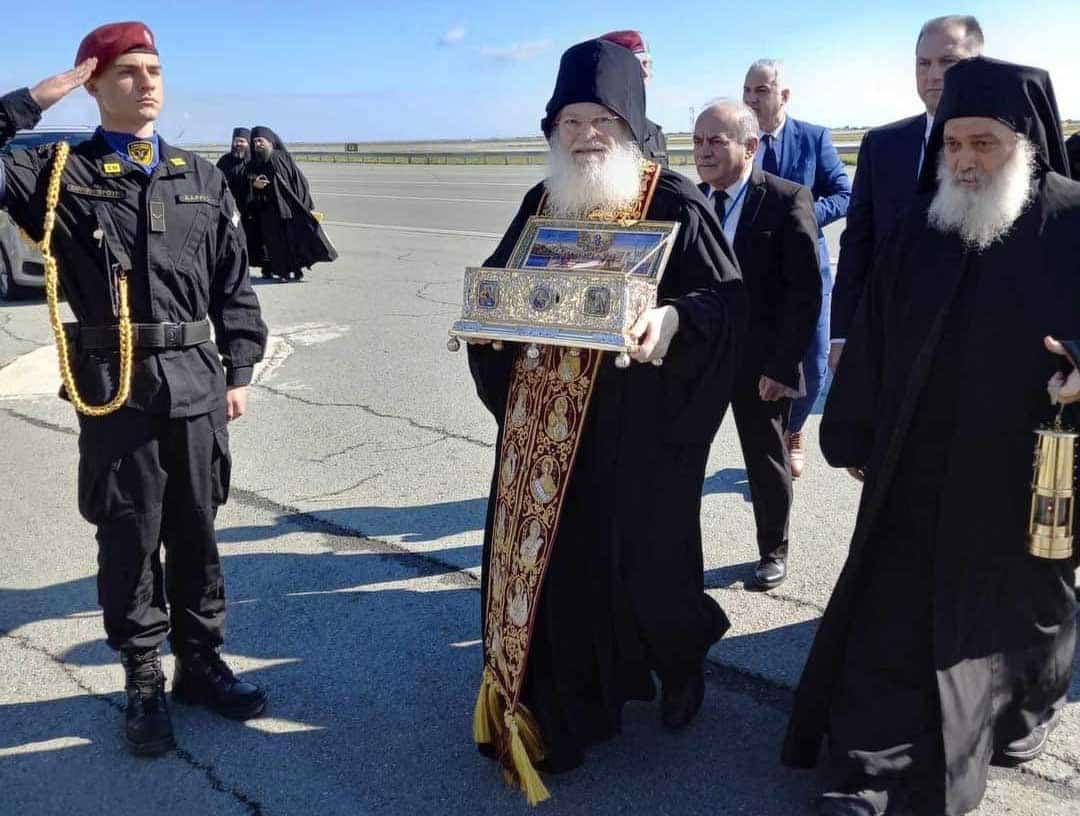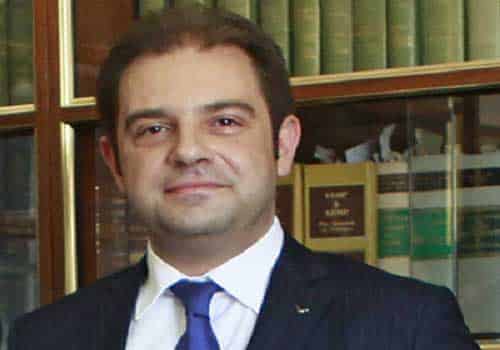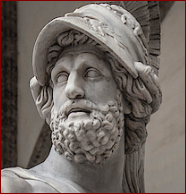THE EXTRADITION of the Turkish Cypriot lawyer Akan Kurshat turned into something of an anti-climax, the guy being released some 12 hours after arriving in Kyproulla.
There can be little doubt that this was a bit like a fixed football match, the result of the extradition procedure known in advance. Kurshat was given assurances that he would not be remanded in custody and therefore agreed to be extradited.
He appeared in court on Friday morning, was read the 20 charges he faces, pleaded not guilty, the judge set hefty bail terms and he was on his way to the north. He will have to appear at Ayios Dhometios police station twice a month, while his trial scheduled to start on February 29, is in progress.
He did not have to hand over his travel documents, presumably so he could show his Cyprus Republic passport, which had been renewed in 2014, while there was a European arrest warrant for him, at the checkpoint when crossing to go to the police station.
The arrest warrant was issued 17 years ago as part of Ethnarch Tassos’ masterplan to liberate Kyproulla through litigation, and caught the current government by surprise when the Italian authorities executed it.
IT WOULD have been a tad awkward for Prezniktwo to have a Turkish Cypriot being dragged through the courts for the alleged illegal exploitation of Greek Cypriot land while he was campaigning for the resumption of talks and pretending he was interested in a settlement.
In the end a temporary face-saving solution was found. Kurshat came, was released on bail and will appear in court for the postponements of the case, which, thanks to our slow-moving justice system, might eventually be tried in four or five years’ time.
Unless of course the resumption of talks does not materialise in the next few months, in which case Kurshat may be given preferential treatment, being a Turkish Cypriot citizen of the Republic, with the trial being speeded up.
CONGRATULATIONS to the UN Secretary-General’s personal envoy Maria Angel Holguin for completing two weeks in her Cyprob job without eliciting a single negative comment from the media. She has concealed her pro-Turkish bias, which is a requirement for landing the UN envoy job, very well, so far.
Even if there were minor signs, they would have gone unnoticed as the media and politicians were dealing with the two-faced, back-stabbing, Turk-loving representative of His Majesty’s government, British High Commissioner Irfan Siddiq, who said in an interview last Sunday that the Turkish Cypriots should be given incentives to return to talks.
Was he suggesting we should give them Paphos?
This sparked yet another round of the national sport – Britain-bashing – with Phil’s columnists leading the assault, reviling Siddiq’s local applauders and demanding for the zillionth time that the government raised the issue of the Bases with the UK government.
No government ever does though. Why?

British High Commissioner Irfan Siddiq
THE GOVERNMENT also had to be seen to be taking action about Siddiq’s interference in our affairs. His comments were described as “unacceptable” by a spokesman, who advised him to avoid remarks touching on “sensitive issues,” while on Tuesday he was called to the foreign ministry for a diplomatic dressing down.
Our government could not have been that pissed off with Siddiq because the very next day the permanent secretary of the foreign ministry, Kyriakos Kouros, was having lunch with him and three other employees of the BHC at a popular Nicosia restaurant. My detective skills helped me establish the two males were BHC staff because they both wore gaudy striped socks as only Brits do; the lady at the table did not, but she just looked English.
Why hadn’t Kouros, who was in plain socks, turned down the invitation after the unacceptable comments? It was as if he did not give a damn about Siddiq’s meddling – unless he had gone to raise the issue of the Bases.
THE RELIGIOUS fundamentalism of the government was laid bare on Monday when it greeted the arrival of the Virgin Mary’s holy belt with the honours accorded to a visit by a head of state. It is a relief they did not have bras back in Jesus’ day because even the faithful might have been reluctant to welcome the holy bra.
Justice Minister Marios Hartsiotis, himself a religious fundamentalist, like our prez and his missus, welcomed the holy relic, which was transported on a private flight by some monk. It was surreal seeing the guard of honour saluting the gold box, which contained the holy relic, being carried by the monk.
It goes without saying that Prezniktwo made some time to go to the Paralimni church, where the holy belt was on display, to pay his respects as he was unable to go to the airport.
A word of praise here to the late Archbishop Chrysostomos II who never bought into this holy relics business. When he was still bishop of Paphos he memorably said, “in the Paphos bishopric, we allow neither icons to cry, nor the belts of the Virgin Mary to perform ‘miracles’ and make women pregnant.”

The belt of the Virgin Mary arrives at the old Larnaca airport
OUR ESTABLISHMENT recently found out how seriously the Consultative Council’s recommendations for appointments to the semi-governmental organisations were taken by Prezniktwo.
It learned that Energy Minister Giorgos Papanastasiou had urged a former CEO of the EAC to apply to the council for a place on the board. Papanastasiou told the man he wanted someone on the board who knew EAC affairs inside out and how the authority operated.
The Consultative Council recommended that the former CEO was given the post of chairman because of his knowledge and experience. In the end the council of ministers did not even give him a seat on the board, probably because he had backed Mavroyiannis in the elections.
The man who got the job, Giorgos Petrou, must have backed the winning horse in the elections, which made him the most suitable candidate for the chairmanship.
BARELY a week goes by without the name of the former prez being brought up in relation to some irregularity during his rule that resurfaces again.
After his leading role in awarding the Vassiliko LNG terminal to a consortium without competitive bidding, we learned of how he prevented the Contractors Council taking any action against companies that had bribed officials, to the tune of €1m in the Paphos sewerage (Sapa) affair.
The officials were sentenced to prison after testimony by the companies which were given immunity. The companies could have been kicked out of the Contractors Association, which would have made them ineligible to bid for state contracts, but this never happened because Nik I kept changing the Contractors’ Council.
Each time the members of the Council were changed, the disciplinary investigation of the companies that gave the bribes had to start from scratch. The devious Nik changed the line-up of the council four times in eight years. The bribing companies’ lawyers argued that pursuing the case after eight years would constitute an ‘abuse of process’, so the matter was dropped.
ONE OF the eight companies that paid bribes even landed the contract for the Pentakomo waste treatment plant but was never able to produce the fuel that would have been sold and funded its operation. For years, Nik turned a blind eye to this disaster, even trying to force the Vassiliko cement factory to take the fuel that could not be used for anything.
It was left to the new government to close down the treatment plant that was burying the treated waste, operating as a landfill. As long as Nik was in office he allowed the plant to carry on working while not delivering what it was contractually obliged to do so; he even rewarded the contractor company’s owner by appointing her to boards of state entities.
Nik was too open-minded to discriminate against someone who admitted bribing officials.







Click here to change your cookie preferences